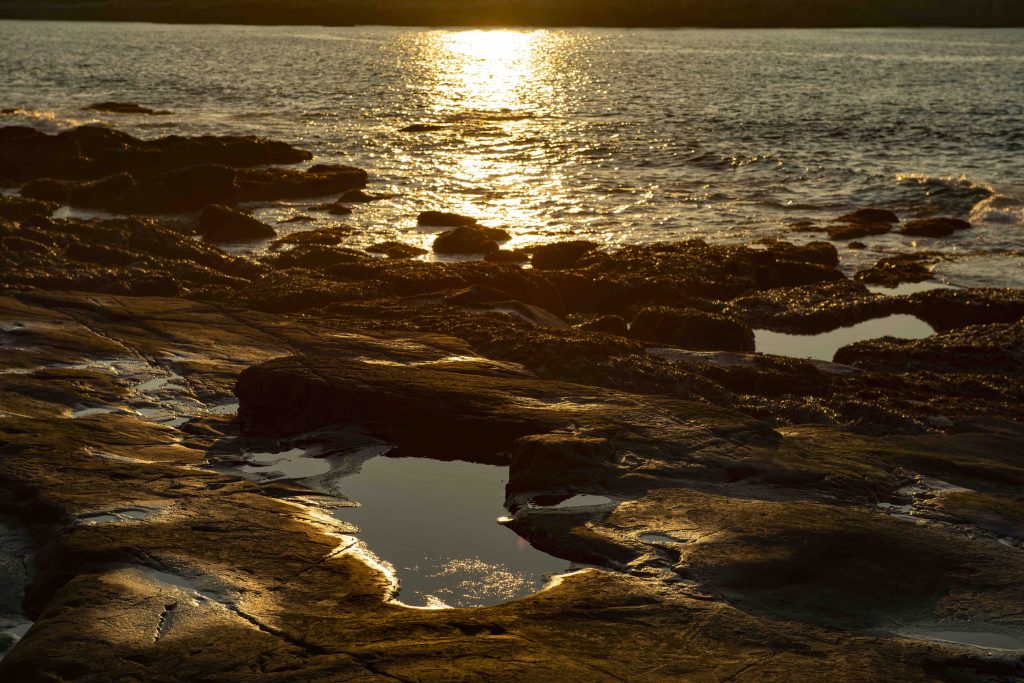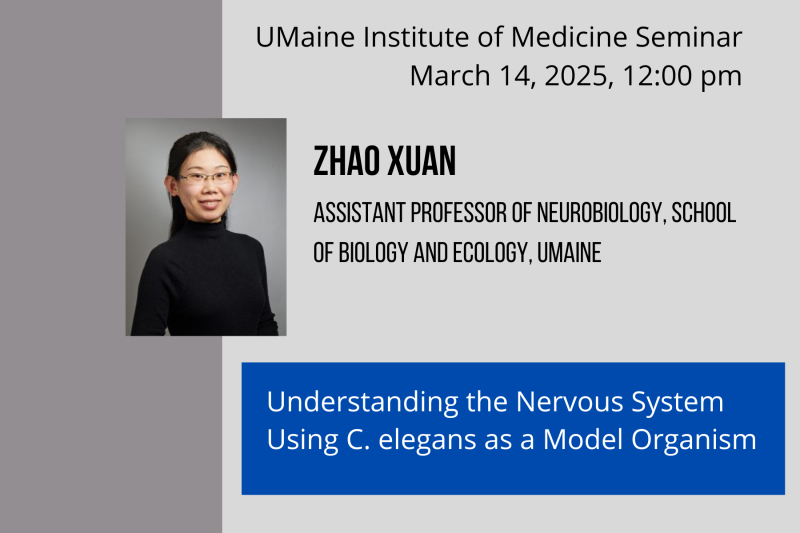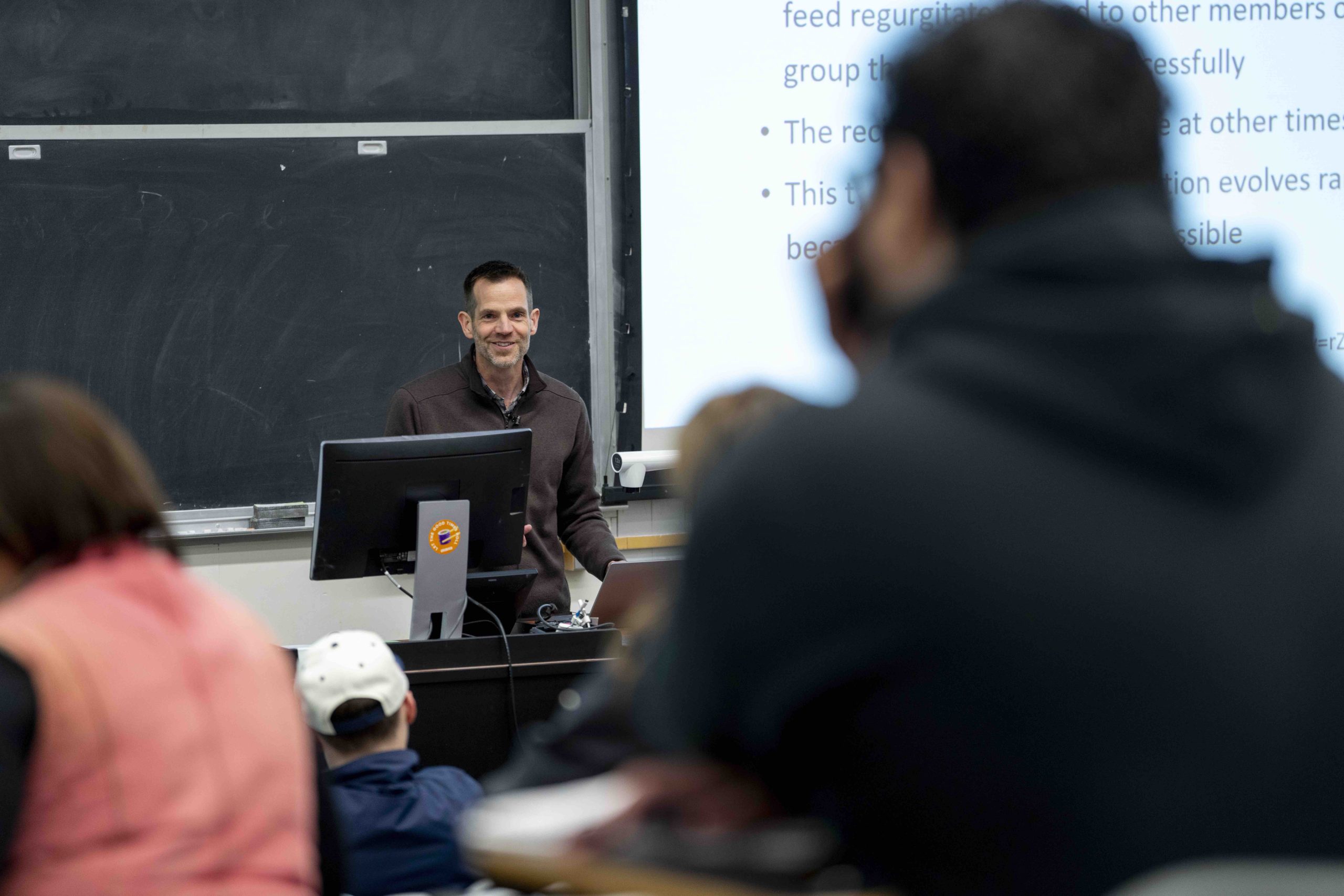
SBE Seminar Speakers
Every semester (fall and spring), we invite speakers from universities, federal and non-federal agencies, and researchers to speak at the Mitchell Center.
SBE fall 2025 Seminar Speakers
All seminars will be held in the Mitchell Center at 3PM on Fridays, unless otherwise stated.
September 5
Dr. Warren Porter, UW Madison
Title: Climate spaces, climate cliffs, and climate change: using Niche Mapper to find the future global consequences for milking cows and swinging gibbons
Hosted by Jacquelyn Gill and Danielle Levesque
This talk focuses on how it is possible to compute climate constraints on the potential for reproduction at the individual and population level as well as survival and growth potential. Species survival in the face of climate change will depend upon successful reproduction. Our results have depended heavily on collaborators’ empirical data to verify the theoretical constructs of climate spaces and climate cliffs. We used milk from dairy cows as a surrogate for individual reproductive output and an unusual population of extremely rare Gibbons do validations at the population level.
Warren Porter is an Emeritus Professor of Integrative Biology, an Ardath and Robert Rodale Professor of Environmental Toxicology and has been an affiliate faculty member in Engineering Physics. He and his colleagues have developed Niche Mapper™, a generic, mechanistic integratemicroclimate-animal energetics/behavior/distribution model for modern and extinct animals. He also studies low-level mixtures effects of pesticides on animals.
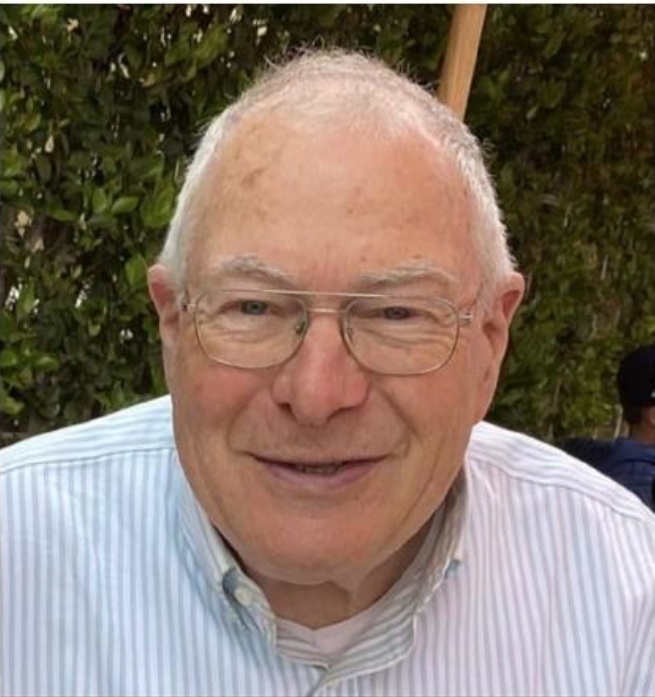
September 12
Julia Barra, UMaine Postdoc
Title: Managing for Soil Health: A Research Trip from Florida to Maine
Hosted by Han Tan
This presentation will explore how replacing fallow periods with cover crops and a dual-purpose crop (both cash and cover) in a corn system can influence soil health and crop production. We will take a closer look at Florida’s sandy soils by tracing nitrogen (N) credits with isotopes (¹⁵N), investigating the expression of N-cycling genes, and evaluating soil health indicators, fertility, corn yields, and simulated long-term soil and crop dynamics. The talk will conclude by explaining my research directions at the University of Maine and discussing some ideas on how we can manage for soil health within some of Maine’s diverse systems.
Julia holds a PhD in Soil, Water, and Ecosystem Sciences from the University of Florida and just started as a Postdoctoral Associate at the University of Maine. She is originally from Brazil, where she completed her BSc in Agronomy and MSc in Soil Science at the Universidade Federal Rural do Rio de Janeiro. Her research focuses on how regenerative agriculture practices support sustainable nutrient management and promote soil health across diverse agroecosystems.

September 26
Dr. Taylor Lindsay, Tufts University
Title: The Little Coral that Could: The Ecology and Trophic Plasticity of New England’s Only Scleractinian Coral
Hosted by TBA
Globally, corals are threatened by anthropogenic stressors and rapid change. However, one little coral may be a climate change ‘winner’, presenting the opportunity to research coral biology without the layered effects of anthropogenic and climate stressors. The Northern Star Coral (Astrangia poculata) is the only shallow-water Scleractinian coral in New England. This species employs facultative symbiosis – the ability to survive with or without algal symbionts – to survive the seasonal fluctuations and turbid waters of New England. This talk explores what we have learned about the ecology of this species as it competes for light and space in the algal beds of coastal Rhode Island. We will also explore the trophic ecology of A. poculata using
physiology and isotope chemistry: What happens when this coral doesn’t have any symbionts? How important are the symbionts to the coral’s energetics? Does a coral maintain the same symbiont state throughout its life? What if you manipulate light levels to prevent photosynthesis?
Come learn all this and more about the little coral that could!
Taylor Lindsay (She/her/hers) is a postdoctoral scholar in the Rotjan Lab at Tufts University. She is working on dynamic energy budgets and maternal provisioning in the temperate coral
Astrangia poculata. She completed her Ph.D. in the Prada Lab at the University of Rhode Island with a focus on the effects of light on coral biology. In her Ph.D., she investigated morphological and physiological plasticity in temperate and tropical corals and used isotope ecogeochemistry to quantify coral energetics. Taylor also has a long history of collaboration with the Shoals Marine
Laboratory, where she supports their long-term intertidal monitoring project and teaches scientific diving. In addition to her passion for science, Taylor is also dedicated to providing innovative and accessible opportunities for students from any background within academia,
providing inclusive teaching and mentorship in a welcoming environment to help students advance and succeed in science. Contact info: taylor.lindsay@tufts.edu, Instagram:
@t.lindsay.sci, Bluesky: @t-lindsay-sci.bsky.social
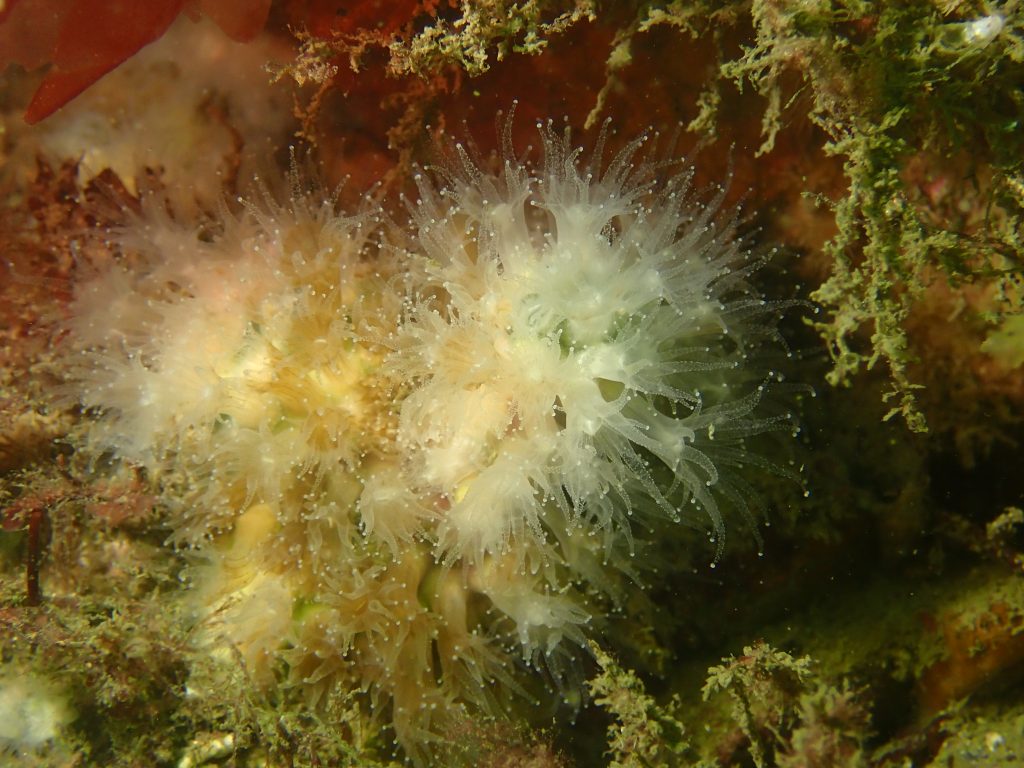
October 10
Dr. Geoff Zahn, William and Mary
Title: Building a better holobiont: A framework for predicting microbiome coalescence
Hosted by Pete Avis
Microbiome transplantation has emerged as a promising nature-based restoration tool capable of modifying plant-associated microbial communities to improve native vegetation establishment and conservation. Recent advances demonstrate the potential of microbiome interventions to guide the recovery of plant-microbe systems, ranging from synthetic microbial inoculants in crops to soil microbiome transplants in forests. However, the key ecological principles that govern coupled microbe-host system trajectories remain elusive, limiting the effectiveness of microbiome based restoration strategies in wild systems. Identifying the microbiome attributes most influential for host performance requires assimilating complex data from highly diverse microbiome communities into ecological predictions. Furthermore, predicting the effectiveness of microbiome transplantations requires a mechanistic understanding of how multi-dimensional microbial species interactions affect assembly processes. We are combining assembly simulations with model-free approaches such as convolutional neural networks to identify the key microbial players and processes that affect transplantation success. Understanding “who” the key players are and “how” they influenced transplantation success can enrich our ability to predict outcomes and harness microbiome transplantations for more effective environmental interventions.
Dr. Geoff Zahn is an Associate Professor of Mycology and Bioinformatics in the Biology Department of Utah Valley University, and a Visiting Faculty member in the Environmental Studies Department of Dartmouth College. He received his PhD in Biology at the University of Arkansas where he studied the global dispersal and functional ecology of slime molds. His research is focused on host-microbe interactions, with an emphasis on fungal mycobiomes. His studies integrate “big data” and modeling to unravel how microbes move around the planet and how they assemble into communities when they get where they are going. His work has a strong applied component and incorporates decision makers and conservation practitioners to develop and improve microbial interventions to restore and conserve threatened habitats.
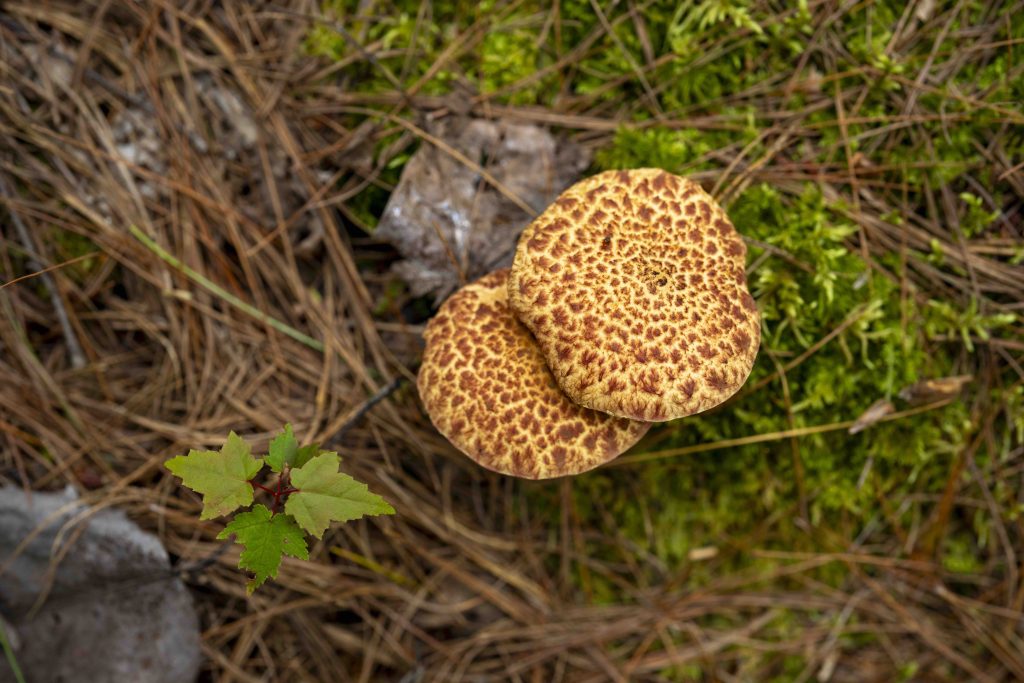
October 17
Dr. Jordon Tourville
Title: Living on the Edge: Past, Present, and Future Changes of Northeastern alpine zones
Hosted by TBA
Alpine zones above treeline in the Appalachian Mountains and adjacent ranges of northeastern North America total only 130 km2 but support distinctive ecological communities and are a regionally important source of floristic biodiversity. However, northeastern alpine is highly vulnerable to overlapping forces of environmental change including rising temperatures, CO2 fertilization, variability in air quality and atmospheric nutrient deposition, declining snow cover, invasive species, and intense recreational use. Pulling from over 40 years of research in this system, this talk will focus on how northeastern alpine has developed over time, the ways in which it is currently changing, and what future threats it may be exposed to. Lastly, I will argue that the development of coordinated research and monitoring programs for regional alpine zones will provide methodologically consistent regional-scale information on how such ecosystems respond to environmental change, complementing the local-scale work of field ecologists and better informing alpine zone stewardship and management activities.
Dr. Jordon Tourville is a terrestrial ecologist for the Appalachian Mountain Club and a visiting scholar in the Department of Geography at Dartmouth College. He received his Ph.D. in Ecology from the Dovciak Lab at the State University of New York – College of Environmental Sciences and Forestry. His research focuses on the response of plant and forest communities, particularly in montane systems, to global change drivers. His current research includes investigating controls on tree species seedling establishment and distributions, climate-related changes in understory plant phenology, mycorrhizal ecology, and community changes of alpine vegetation in the northeastern US. To address these themes, he uses a combination of observational and manipulative experimental field studies, distribution modeling, and spatial data analysis.
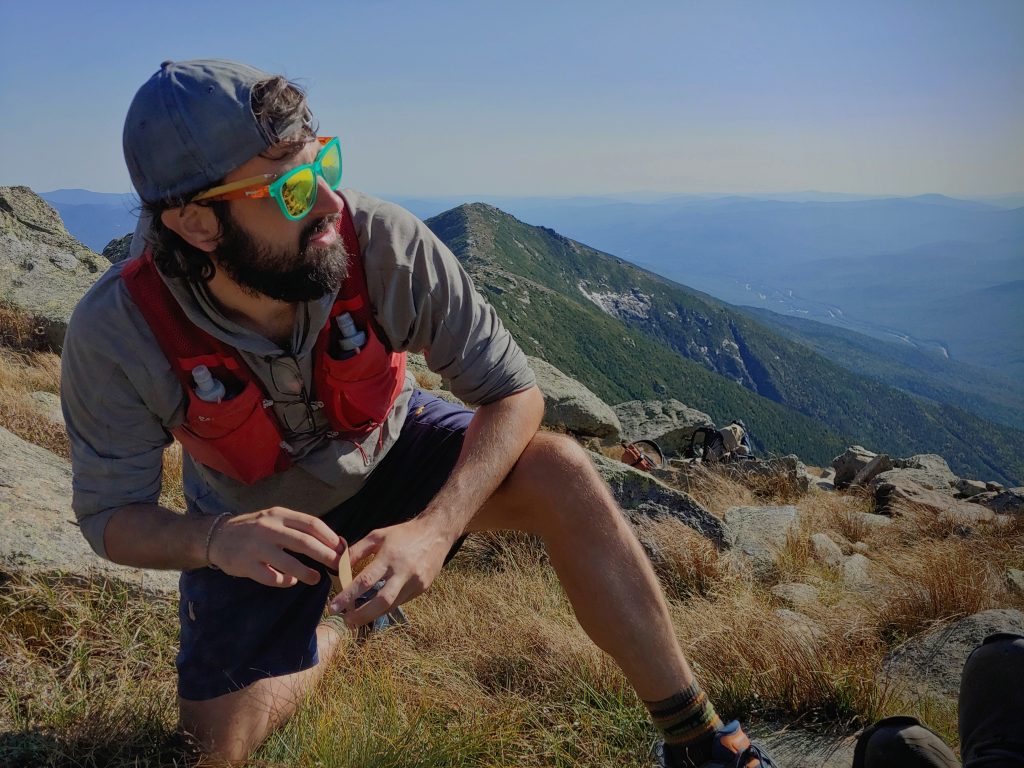

October 24
Dr. Lydia Fyie
Title: Seasonality of Vector-Borne Disease in Anthropogenic Environments
Hosted by Allie Gardner
The environment has significant impacts of vector-borne disease dynamics, including on the seasonality of vector activity. However, human activity through factors like urbanization or climate change have fundamentally altered the environmental cues that vectors use to regulate their seasonal responses and activity. Understanding how anthropogenic environments have altered vector seasonality is crucial for predicting vector-borne disease in changing landscapes and climates. In this talk, we will discuss whether light pollution and urban warming inhibit seasonal dormancy in the West Nile virus vector, the Northern house mosquito. We will explore this question using a combination of laboratory and field experiments. We will also address preliminary findings from my postdoctoral work UMaine about the impact of climate change on phenology in the blacklegged tick across the state.
Dr. Lydia Fyie is a postdoctoral researcher in SBE at the University of Maine, where she is working on understanding seasonal activity and physiology of the blacklegged tick. She received her Ph.D. in Entomology from the Ohio State University in 2024 studying the effects of urbanization on mosquito dormancy. Her research focuses on understanding how human-dominated ecosystems and environmental change influences vector-borne disease by altering the physiology, behavior, and ecology of the arthropod vector.
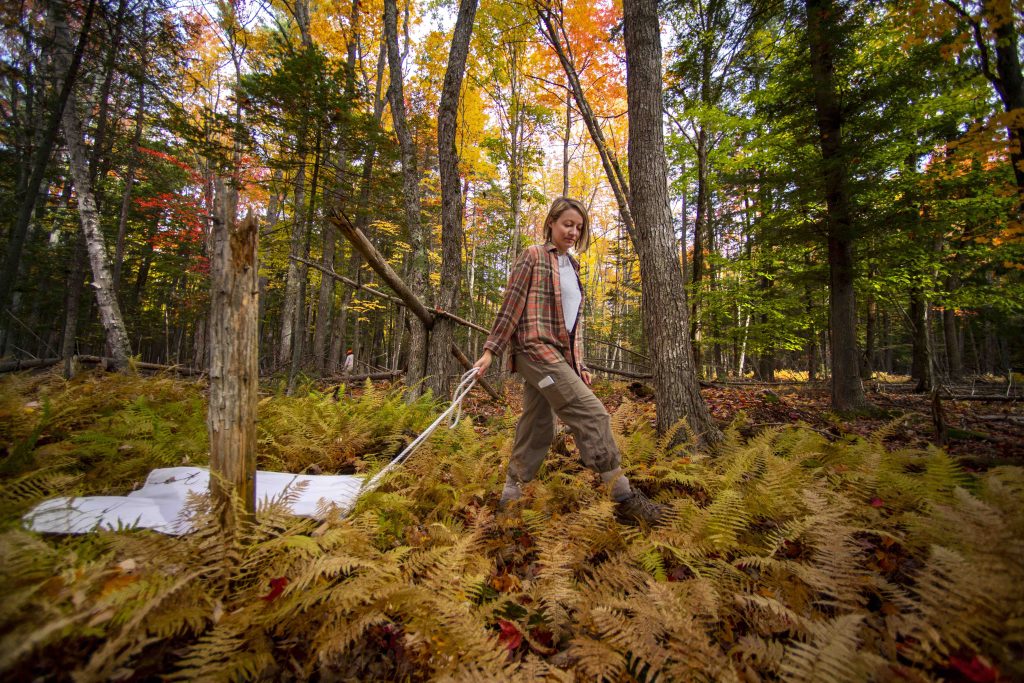
November 7
Dr. Adam Heathcote, St. Croix Watershed Research Station
Title: Building QuFrom carbon burial to algae blooms: remote lakes as sentinels of global change
Hosted by Jasmine Saros
Lakes are integrators of their surrounding environment and sentinels for global change. They are among the fastest warming ecosystems on the planet, often exhibiting rates of warming that outpace coincident increases in air temperature. This effect is especially pronounced in our most northern biomes, where the impact of climate change on lake ice has been shown to compound this effect and may have indirect effects on nutrient cycling in these sensitive ecosystems. I will present results from two studies looking at how global change drivers, including warming, have impacted ecosystem functioning in lakes. The first study will look at a set of lakes one of the most protected environments in North America, the Boundary Waters Canoe Area Wilderness, with the purpose of documenting and diagnosing a recent wave of observed harmful algal blooms which have alarmed local resource managers and stakeholders. The second study is pan-Arctic synthesis of carbon burial (sequestration) in lakes. We have assembled the largest dataset of radiosotopically dated sediment cores from the Arctic and quantified the trajectory and magnitude of carbon burial over the last 100 years. Using this dataset, we also produced a predictive model to upscale our estimates to lakes across the entire Arctic and also predict future contributions of Arctic lakes to the global carbon cycle on a progressively warming planet. Together, these studies demonstrate the sensitivity of northern ecosystems to global change and quantify the already significant impacts warming is having on these systems.
Adam Heathcote is the Director of the Department of Water and Climate Change at the Science Museum of Minnesota and oversees the St. Croix Watershed Research Station, a member of the Organization of Biological Field Stations with a speciality in radiometric dating and paleolimnology. Heathcote received his PhD from Iowa State University and was a Postdoctoral Fellow in the Group de Recherche Interuniversitaire en Limnologie at the Université du Québec à Montréal. He is a limnologist and biogeochemist whose work focuses on the impact of humans on aquatic ecosystems from both contemporary and paleo-limnological perspectives. He is also a Fellow and was elected to the Board of Directors for the Association for the Sciences of Limnology and Oceanography.

November 14
Dr. Joely DeSimone, UMCES
Title: Working towards a community ecology understanding of bird migration
Hosted by Kate Ruskin
This talk will explore bird migration across levels of biological organization, from individual physiology to community ecology. At the organismal level, birds undergo dramatic physiological changes both in preparation for and in response to long-distance migratory flights. At the community level, dozens of migrating bird species co-occur at stopover sites and in flight (e.g. over 1 million birds flew over Penobscot County in a single night last fall), and their species interactions, though poorly understood, may shape navigation, refueling, and migratory success. I will present my graduate research, which examines how body condition, food availability, and the hormone corticosterone shape migratory movements, and my postdoctoral research, which uses social network analysis of long-term bird banding data to reveal persistent species relationships among migrating songbirds.
Joely DeSimone received a PhD in Organismal Biology, Ecology, and Evolution from the University of Montana in 2022 and she is now an NSF Postdoctoral Fellow at the University of Maryland Center for Environmental Science. She is a migration ecologist who combines captive experiments, field studies, and big data analyses to understand the causes and consequences of animal movements.
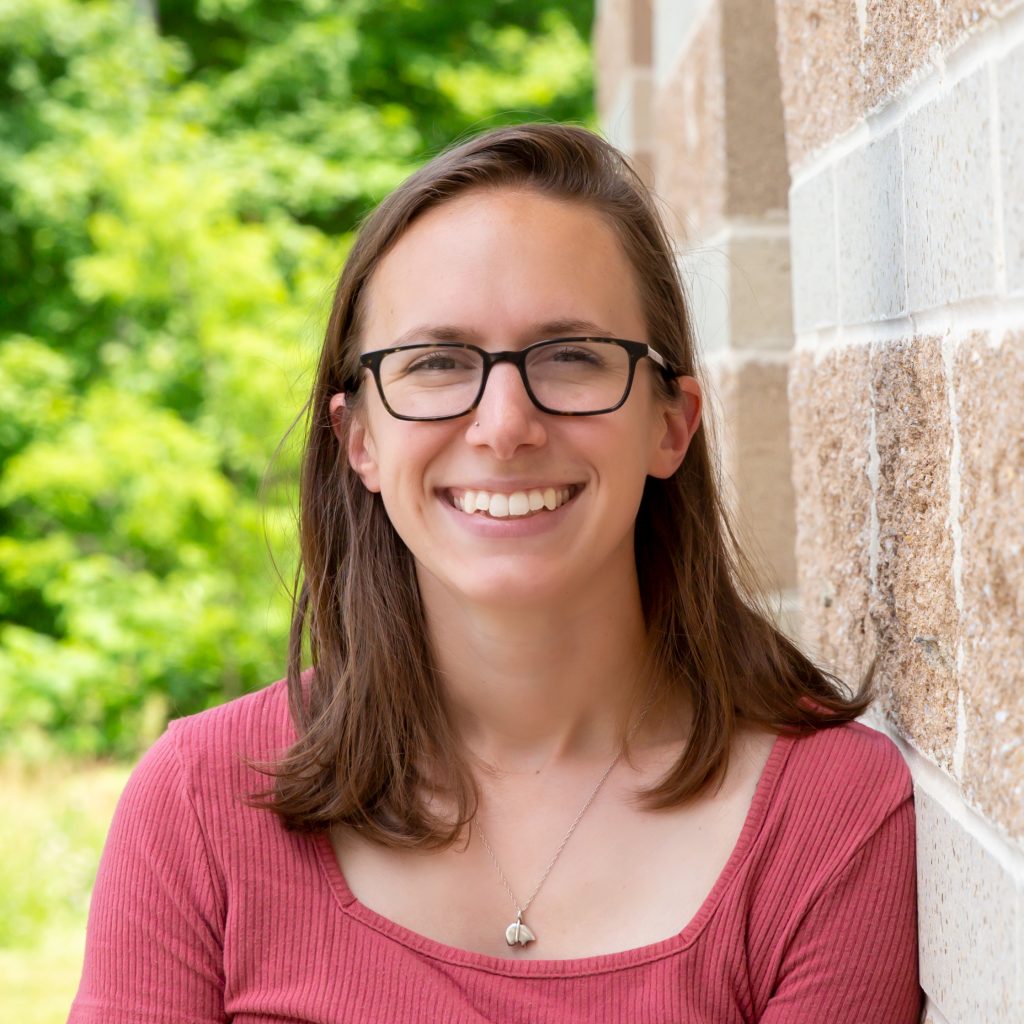
December 5
Dr. Lucas Bernacki. St. Joseph’s College
Title: An Investigation of Morphology and Genetics in Subspecies of Painted Turtles (Chrysemys picta) in Maine, USA
Hosted by Erin Grey-Avis
Lucas Bernacki will discuss the challenges and triumphs of conducting scholarly activities at a primarily undergraduate institution. Of particular focus will be an undergraduate research experience that is in progress, aimed at investigating the introgression in Maine of two of the classically accepted subspecies of Painted Turtle (Chrysemys picta). The investigation includes both a genetic analysis, employing the mitochondrial control region, as well as a morphometric analysis of characters used to describe the four traditional Painted Turtle subspecies.
Lucas Bernacki completed his undergraduate studies at Sacred Heart University in Fairfield CT. He went on to earn a PhD in molecular evolution from the University of Vermont. Bernacki is currently an Associate Professor of Biology at Saint Joseph’s College of Maine, where he regularly teaches Genetics, Ecology, and the Biology Capstone Research courses. Bernacki also maintains a research laboratory focusing on population genetics. Projects out of this lab typically focus on the conservation and management of local populations while incorporating research experiences for undergraduate students. Bernacki also serves as a genetic consultant to the Maine DEP, a role in which he continues to refine methodologies for the identification and characterization of invasive plant populations.
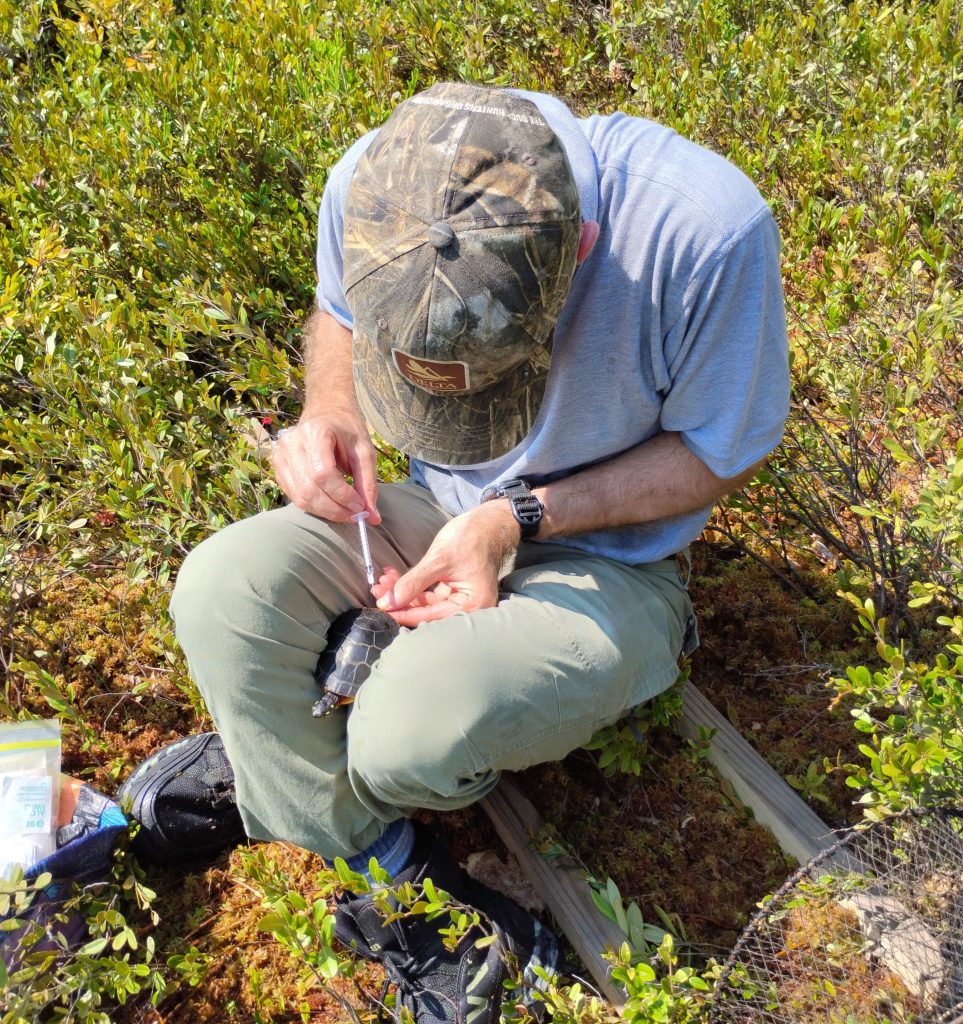
DEcember 12
Kristen Nolting, Colby College
Title: It’s not easy bein’ green: plant evolution and adaptation in natural and agroecosystems
Hosted by TBA
TBA
TBA
UMaine Institute of medicine seminar series
MSE Summit on Microbiome Stewardship
July 7 – July 10

Dementia Case Conferences by the the Maine Rural Dementia Care Training Project
July 23 @ 12:00 pm – 1:00 pm
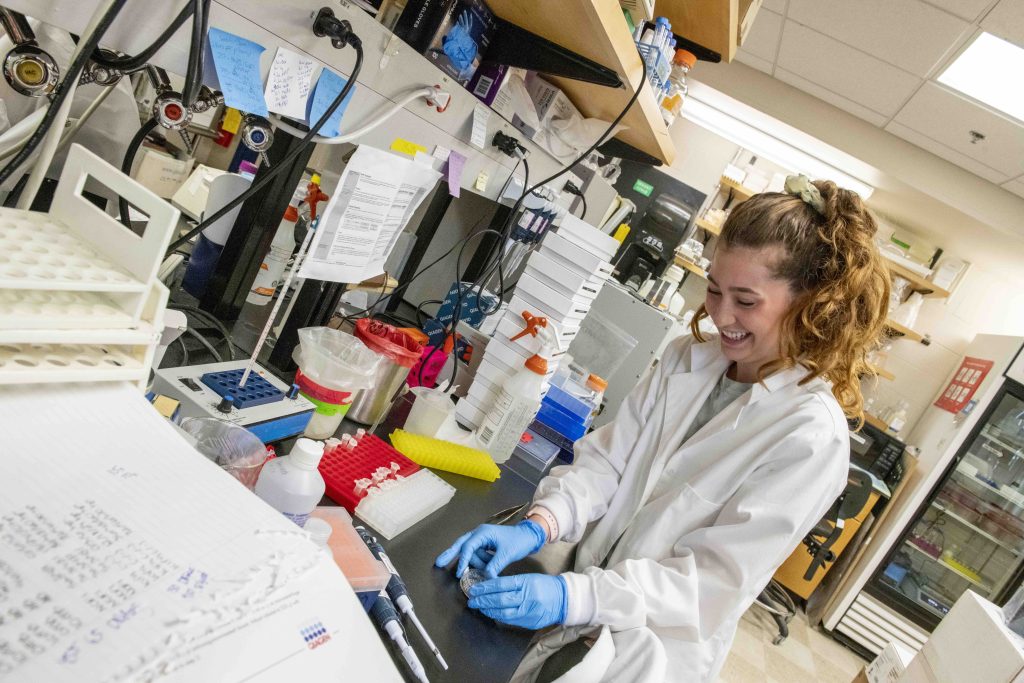
questions?
um.biology@maine.edu

